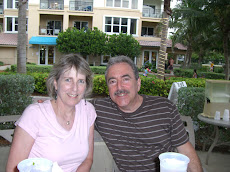
Time according to Philosophy - from the Wikipedia:
In 5th century BC Greece, Antiphon the Sophist wrote, in his chief work Truth, "Time is a thought or a measure, not a substance." This is similar to the later statement by Kant.
In ancient thought, Zeno's paradoxes challenged the conception of infinite divisibility, and eventually led to the development of calculus. Parmenides (of whom Zeno was a follower) believed that time, motion, and change were illusions, basing this on a rather interesting argument. More recently, McTaggart held a similar belief.
Many ancient philosophers wrote lengthy essays on time, believing it to be the essence around which life was based. A famous analogy was one comparing the time of life to the passing of sand through an hourglass. The sand at the top is the future, and, one tiny grain at a time, the future flows through the present into the past. The past ever expanding, the future ever decreasing, but the future grains being moulded into the past through the present. This was widely discussed in around the 3rd century CE.
The dharmic religions such as Buddhism and Hinduism, have a concept of wheel of time, that regards time as cyclical and consisting of repeating ages.
The Judaeo-Christian concept, however, based on the Bible, is that time is not cyclical but linear, with a beginning, the act of creation by God, and an end, the eschaton. In the Christian view, the eschaton will happen when Christ returns to earth in the Second Coming to judge the living and the dead. This will be the consummation of the world and time. St Augustine's City of God was the first developed application of this concept to world history. The Christian view is that God and the supernatural world are outside time and exist in eternity.
Newton believed time and space form a container for events, which is as real as the objects it contains. In contrast, Leibniz believed that time and space are a conceptual apparatus describing the interrelations between events. These differences came to a head in the famous Leibniz-Clark Correspondence.
Leibniz and others thought of time as a fundamental part of an abstract conceptual framework, together with space and number, within which we sequence events, quantify their duration, and compare the motions of objects. In this view, time does not refer to any kind of entity that "flows," that objects "move through," or that is a "container" for events.
The bucket argument proved problematic for Leibniz, and his account fell into disfavour, at least amongst scientists, until the development of Mach's principle. Modern physics views the curvature of spacetime around an object as much a feature of that object as are its mass and volume.
Immanuel Kant, in the Critique of Pure Reason, described time as an a priori notion that allows us (together with other a priori notions such as space) to comprehend sense experience. With Kant, neither space nor time are conceived as substances, but rather both are elements of a systematic framework necessarily structuring the experiences of any rational agent. This is similar to the outlook of the Sophist Antiphon. Spatial measurements are used to quantify how far apart objects are, and temporal measurements are used to quantify how far apart events occur.
Schopenhauer, in the preface to his On the Will in Nature, stated that "Time is the condition of the possibility of succession." This is in accordance with Kant's understanding of time as a mental form in an observing subject.
Nietzsche, inspired by the concept of eternal return in his book Thus Spoke Zarathustra, argued that time possesses a circular characteristic. Postulating an infinite past, "all things" must have come to pass therein; the same for an infinite future.
In Existentialism, time is considered fundamental to the question of being, in particular by the philosopher Martin Heidegger.
 I look above my head
I look above my head




 Released into the night
Released into the night Says Dogen Zenji, in "Shobogenzo [Treasury of the Eye of True Dharma": "If one examines the 10,000 things with a deluded mind and body, one will suppose that one's mind and body are permanent. But if one practices intimately and returns to the true self, it will be clear that the 10,000 things are without self."
Says Dogen Zenji, in "Shobogenzo [Treasury of the Eye of True Dharma": "If one examines the 10,000 things with a deluded mind and body, one will suppose that one's mind and body are permanent. But if one practices intimately and returns to the true self, it will be clear that the 10,000 things are without self."






 Across your face
Across your face



